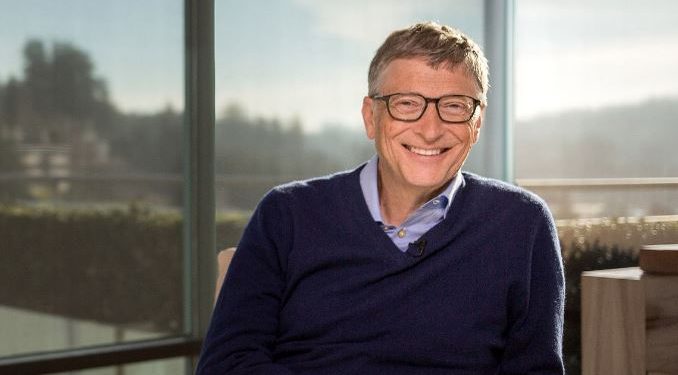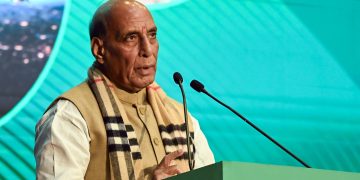By Peter Singer
Ahead of this year’s United Nations Climate Change Conference (COP30), now underway in Belém, Brazil, Bill Gates, who chairs and funds the foundation that bears his name, released an essay entitled Three tough truths about climate. The first of these truths is: Climate change is a serious problem, but it will not be the end of civilization.
Gates recognizes that climate change is “a very important problem,” that it “needs to be solved,” and that “[e]very tenth of a degree of heating that we prevent is hugely beneficial because a stable climate makes it easier to improve people’s lives.” Nevertheless, to say that climate change will not be the end of civilization must lessen our sense of the urgency of acting to mitigate it. So, we should ask whether this “truth” really is true.
Gates defends his flat statement that climate change “will not be the end of civilization” with a graph showing that even if countries do no more than continue what they are doing now, “Global warming will probably be less than 3°C by 2100.” More precisely, the graph suggests that by 2100, with countries continuing to do what they are doing now, the global average temperature will be 2.9°C above the pre-industrial level.
Suppose we agree that, although a global temperature rise of 2.9°C would make some parts of our planet uninhabitable because of extreme heat or rising sea levels, enough will still be suitable for human habitation to allow civilization to continue. The question remains: Will the temperature rise stop at 2.9°C?
To make the case that it will, Gates gives a detailed account of technological innovations that, he believes, could enable us to move to zero emissions before the end of the century. But he misses something critically important. To see this, let’s take a step back.
The United Nations Framework Convention on Climate Change (UNFCCC), which has been signed by 198 parties, including all United Nations member states, dates from the “Earth Summit” held in Rio de Janeiro in 1992. Article 2 of the convention states that its ultimate objective is to achieve “stabilization of greenhouse gases in the atmosphere at a level that would prevent dangerous anthropogenic interference with the climate system.”
The convention did not put any specific limit on how much global warming could be tolerated without dangerous anthropogenic interference with our climate. Countries had different views about that, and the science was still developing.
Eighteen years later, however, at the 16th Conference of the Parties to the UNFCCC (COP16), in Cancún, the science was sufficiently advanced for it to be agreed that to avoid danger, global warming must be limited to 2°C above pre-industrial levels. Then, in 2015, with further evidence showing the threat of sea-level rise to low-lying island states, the agreement was further refined at COP21 in Paris to hold the increase to “well below” 2°C while “pursuing efforts to limit the temperature increase to 1.5°C.”
All the criticism of the 2°C limit has been on the side of saying that it is too high. For example, a two-year expert review reported to the UNFCCC in 2015 that “the ‘guardrail’ concept, in which up to 2°C of warming is considered safe, is inadequate, and would therefore be better seen as an upper limit, a defence line that needs to be stringently defended, while less warming would be preferable.”
No major country, nor any authoritative expert body, has suggested that we could safely raise the 2°C limit. The main reason for this is not that civilization will be unable to survive in a world that is 2°C warmer than the pre-industrial world was, or that, as Gates points out, it is easier to improve people’s lives when the climate is stable.
Instead, the main reason is that once global warming exceeds 2°C, the risk of activating positive feedback loops increases significantly. These loops may further increase global temperatures even if we have, thanks to the technological innovations Gates mentions, reduced to zero the emissions for which humans are directly responsible.
Three of these feedback loops are particularly important:
When we include these and other reinforcing loops in our calculations, we cannot easily brush aside the threat climate change poses to the future of civilization.
Gates seeks to de-emphasize the existential threat posed by climate change in order to “put human welfare at the center of our climate strategies.” But this doesn’t tell us how tolerant we should be of the risk of creating a climate that will be disastrous for human welfare for centuries to come. Tolerating 2.9°C of warming by 2100 may, in the long run, be far worse for human welfare than doing everything possible to keep warming below 2°C.
The writer is Professor in Medical Ethics at the Centre for Biomedical Ethics at The National University of Singapore, and Emeritus Professor of Bioethics at Princeton University.
©PROJECT SYNDICATE






































